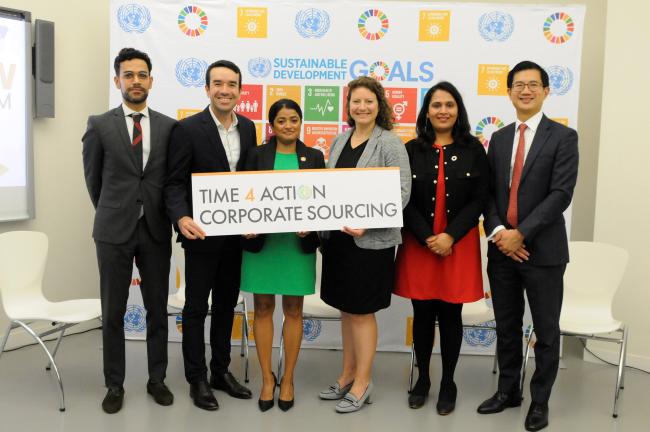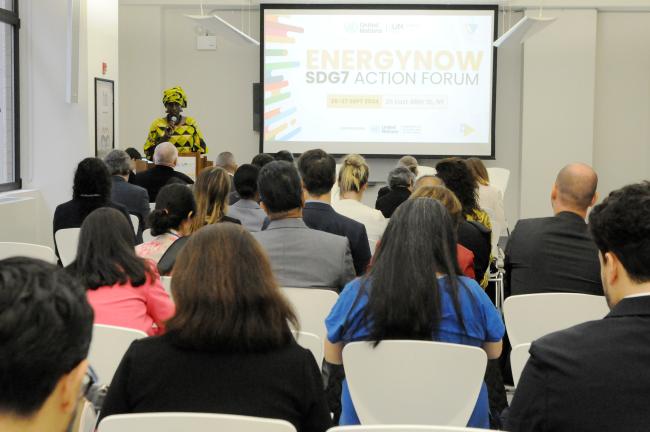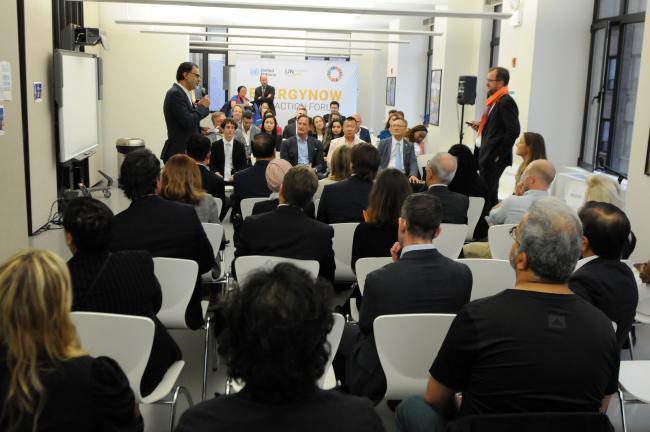Achieving SDG7 and net-zero emissions will require tripling annual global investments in clean energy, which will require innovative approaches and mechanisms to achieve this level of investment. This includes welcoming and adopting new perspectives that contribute toward enabling and growing markets through new investment pathways. To further address this need, day two of the ENERGYNOW SDG7 Action Forum flipped the switch from emerging sustainable development to focusing on creating pathways for investment during a series of parallel panel sessions. There was a consensus among participants that we are aware of the challenges standing in the way of achieving SDG7 and the technologies required to overcome them exist, but mobilizing the appropriate funding, support, and partnerships, all within the short time remaining until 2030, is a major barrier to meeting targets and goals. To overcome these challenges, panels focused on specific aspects within the energy sector that are facing their own unique challenges, including: clean cooking; green hydrogen; carbon-free energy; investing in and de-risking renewables; and regional experiences and perspectives to overcoming these issues.
A ministerial roundtable focused on strengthening local value chains for the energy transition in the global South, with ministers from African countries emphasizing the need for raw materials extracted in their countries to be developed at home and not exported, which has so often happened in the past. “When all the minerals are gone what will be left for Africa…they will not grow back like a tree,” warned Malawi’s Mining Minister.
During one of the morning sessions on clean cooking, panelists reflected on how this particular issue has emerged to become a focal point of energy work in recent years. However, panelists acknowledged that technology was not a panacea, noting that tradition and cultural practices around cooking can prevent the adoption of clean cooking resources. Understanding local contexts was a common theme as panels also discussed the unique challenges of meeting SDG7 in Central America and achieving carbon-free energy 24/7 in both developed and developing countries.
Afternoon sessions brought green hydrogen, affordable and clean energy, and de-risking for renewables into the spotlight. During discussions on green hydro, panelists lamented that they have been discussing the benefits of green hydro over and over, but felt that market regulations, standards, and affordable technology have yet to meet the need to deliver on its potential. Shifting from technology to financing mechanisms, conversations on de-risking investments in renewable energy addressed difficulties in getting support and buy-in from governments and the private sector. Several participants highlighted the role that philanthropic organizations can play in this regard, helping to prepare and develop rural electrical projects, for example, which could facilitate private sector involvement. A lively audience discussion challenged the panel to look inward at the financial practices of the institutions they represent.
To receive free coverage of global environmental events delivered to your inbox, subscribe to the ENB Update newsletter.
All ENB photos are free to use with attribution. For this event, please use: Photo by IISD/ENB - Diego Noguera






















































